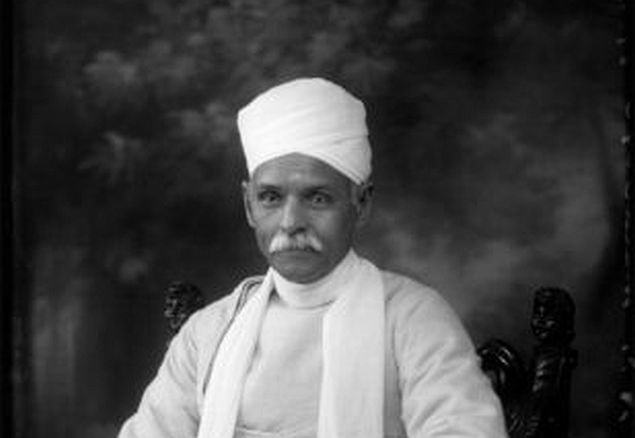Politics
Pandit Madan Mohan Malaviya: Remembering A Towering Leader Of Pre-Independent India
- Pandit Madan Mohan Malaviya was an exemplary leader, who influenced and shaped the political thought process of the day.
- A tribute to a stalwart of pre-Independent India on his 156th birth anniversary.

Pandit Madan Mohan Malaviya
Pandit Madan Mohan Malaviya was one of the foremost educationalists, legal luminaries, scholars and editors of pre-Independent India. But these were not the only facets to his personality and life. Pandit Malaviya also influenced and shaped the political thought process of the day.
Here are some of the important contributions of this towering personality, who was awarded the country’s highest civilian honour, the Bharat Ratna, in December 2014 – 71 years after he died.
Champion Of Hindi
In 1900, the government of British India announced Hindi as an official language of the North Western Provinces (NWP) and Oudh. With this announcement, Hindi became officially equal to Urdu, which was till then, the official language of the NWP and Oudh. The movement in support of Hindi was led by Pandit Malaviya. In the process, he compiled a great number of documents and statements in a persuasive pamphlet titled, ‘Court Character and Primary Education in North-Western Provinces and Oudh’. The pamphlet is believed to have decisively influenced the British government in favour of Hindi.
Four times President of Congress
He served as president of the Indian National Congress four times – in 1909, 1918, 1930 and, 1932. In 1886, a young Malaviya addressed the second session of the Congress at Calcutta, and impressed many with his oratory, including the founder of the Congress, Alan Octavian Hume.
…And Fought Gandhi On The Khilafat Issue
However, Malaviya was opposed to Mahatma Gandhi’s endorsement of the Khilafat movement. Gandhi saw religion as an important part of politics and saw nothing wrong if Muslims joined the Non Co-operation Movement in the name of religion. His only condition was, as always, that it all remained non-violent. Pandit Malaviya and others were against Gandhi subsuming the Khilafat movement into Non Co-operation.
...And He Was Proved Right
Eventually, violence did take over. In 1921, the Moplah uprising in Kerala sought to establish its own Caliphate. Hundreds of Hindus were either killed or forcibly converted. This, along with the Chauri-Chaura tragedy, put the brakes on the movement, and eventually, Gandhi called it off.
The BHU Story
What Pandit Malaviya would be remembered most was for the establishment of the Banaras Hindu University (BHU). He wanted to set up a modern educational institution where students study not for later serving the government but for contributing to nation-building. In order to achieve this, he abandoned his flourishing legal practice.. When Gopal Krishna Gokhale, a stalwart of social and political reforms, learnt of Malaviya quitting his legal practice, he is believed to have remarked:‘Are you mad?’.
Malaviya chose Varanasi over his birthplace, Allahabad, to establish this institution as he believed, “Kashi is the epicentre of education.”
Hindu College, Muslim Donor
In the process of establishing the BHU, Pandit Malaviya accomplished many inconceivable tasks. For example, Pandit Malaviya managed to get donations from one of the richest Muslims of the world – the Nizam of Hyderabad for an institution that bore the word ‘Hindu’.
Back To Law And Journalism
Malaviya returned to legal practice briefly to appear on behalf of those convicted in the Chauri-Chaura case. He managed to get about 150 people acquitted out of about 170.
Pandit Malaviya was also a seasoned editor. He was the owner of the Hindustan Times in the 1920s and served as its chairman till his death in 1946. He was instrumental in turning the paper into a professional enterprise and shaping the reputation that it now enjoys.
Support Swarajya's 50 Ground Reports Project & Sponsor A Story
Every general election Swarajya does a 50 ground reports project.
Aimed only at serious readers and those who appreciate the nuances of political undercurrents, the project provides a sense of India's electoral landscape. As you know, these reports are produced after considerable investment of travel, time and effort on the ground.
This time too we've kicked off the project in style and have covered over 30 constituencies already. If you're someone who appreciates such work and have enjoyed our coverage please consider sponsoring a ground report for just Rs 2999 to Rs 19,999 - it goes a long way in helping us produce more quality reportage.
You can also back this project by becoming a subscriber for as little as Rs 999 - so do click on this links and choose a plan that suits you and back us.
Click below to contribute.
Latest